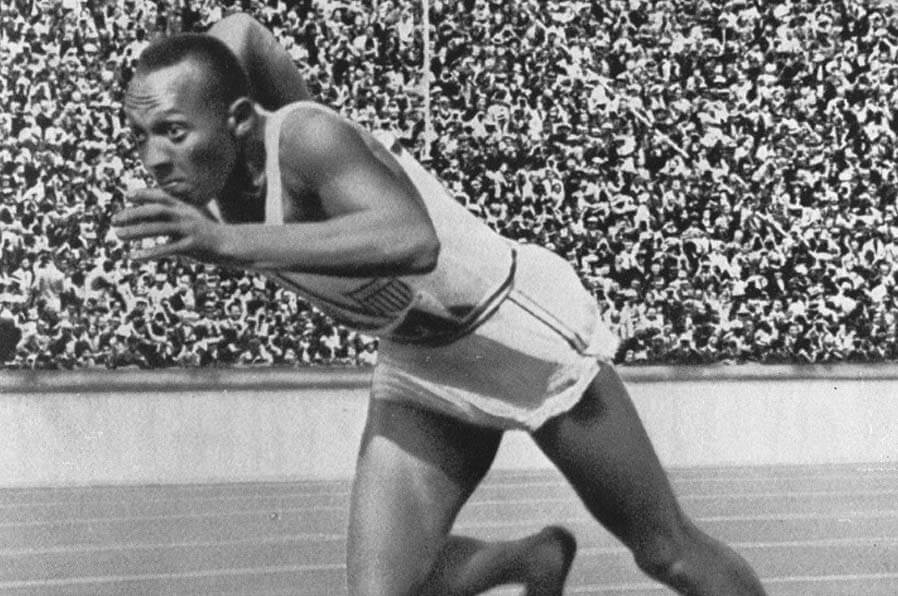When politics and sports collide

Perhaps the only subject more polarizing than politics is sport. Both can mean the world to people, and some even draw a parallel between supporting a sports team and supporting a political party or movement, with all the partisan beliefs and behaviours that support entails.
Sport is part of just about everyone’s lives, and its stars are among the most famous faces in the world, making them arguably more influential than even the highest-ranking politicians. So when athletes choose to use their platform to express their political beliefs, the world pays attention.
As we will see in the examples that follow, when the worlds of sport and politics collide, the results are often memorable and controversial.
Muhammad Ali refuses the draft (1967)
With the USA at war with Vietnam and enforcing conscription among young Americans, Muhammad Ali – the highest-profile boxer and athlete in the country – refused to sign up to the armed forces as a conscientious objector; as he put it, “I ain’t got no quarrel with those Vietcong.” Ali was sentenced to five years in prison for draft evasion, fined $10,000 and banned from boxing for three years. His conviction was overturned four years later by the US Supreme Court, and his controversial decision was pivotal in swaying public opinion on the Vietnam War.
Miami Heat support Trayvon Martin (2012)
In February 2012, 17-year-old African-American Trayvon Martin was shot dead by George Zimmerman, a neighbourhood watch volunteer in Florida who was later found not guilty of murder. LeBron James, the most famous active basketball player in America at the time, tweeted an iconic and controversial picture in support of Martin and his family, featuring James and the rest of the Miami Heat squad bowing their heads, and wearing the same kind of hoodie Martin was deemed a “threat” for wearing at the time of his death.
World Cup hosts spark debate (2018 – 2022)
The football World Cup is the most prestigious sporting tournament in the world, but FIFA has come under fire from supporters and athletes alike for its recent choice of hosts. Both the Russia 2018 World Cup and the 2022 edition in Qatar have come under fire from human rights groups and supporters. Despite the latter going ahead as planned, Qatari officials were later revealed to have persuaded European Parliament deputies to downplay the country’s human rights record, its treatment of foreign workers involved in the building of football stadiums, and its ban on homosexuality.
The Black Power salute (1968)
US athletes Tommie Smith and John Carlos attracted controversy during the 1968 Summer Olympics in Mexico City, when they made the distinctive Black Power gesture during a medals ceremony, having won gold and bronze respectively for the 200-meter run.
Jackie Robinson breaks the colour barrier (1947)
As the first man of colour to play for the Brooklyn Dodgers, Jackie Robinson made history and paved the way for the US Civil Rights Movement in the process. Facing a barrage of racial threats and insults, Robinson excelled at the Dodgers, winning Rookie of the Year in his first season and eventually getting inducted into the Baseball Hall of Fame in 1962.
Billie Jean King pushes for equality (‘60s & ‘70s)
BJK was one of the greatest tennis players of all time, but she is perhaps better known today for her advocacy of female equality in the sport. Thanks to her continuous efforts, prize money for women’s tennis increased significantly, and the first union for female tennis players was created. Not to mention her emphatic victory over Bobby Riggs in 1973, during the infamous “Battle of the Sexes” exhibition match.
Jesse Owens defies Hitler (1936)
Jesse Owens was an African-American athlete who excelled at the 1936 Summer Olympics in Munich, winning four gold medals in the 100m, 200m, long jump and 4x100m relay. He did so in front of German Reichsführer Adolf Hitler, who was aiming to use the Olympics to promote his governments’ ideals of Aryan racial supremacy and antisemitism. Owens had other plans, however, becoming the most successful athlete at the Games.
Colin Kaepernick kneels for the anthem (2016)
San Francisco 49ers quarterback Colin Kaepernick made headlines when he kneeled during the anthem throughout the 2016 season, in a protest against racial injustice and police brutality in the US. His stance polarized the nation, with then-President Donald Trump urging NFL owners to fire players who protested the anthem. Kaepernick became a free agent once the season ended and remains unsigned to this day – a status most analysts attribute directly to his ongoing political activism. In 2018 he was the focus of a Nike ad campaign featuring the text: “Believe in something. Even if it means sacrificing everything.”
